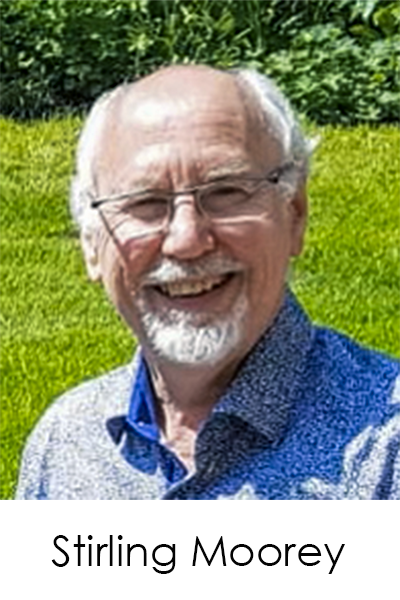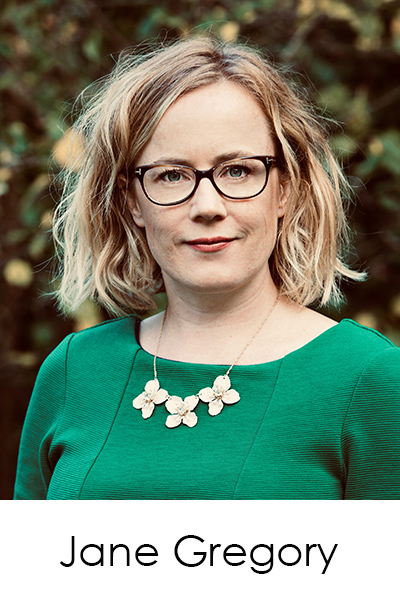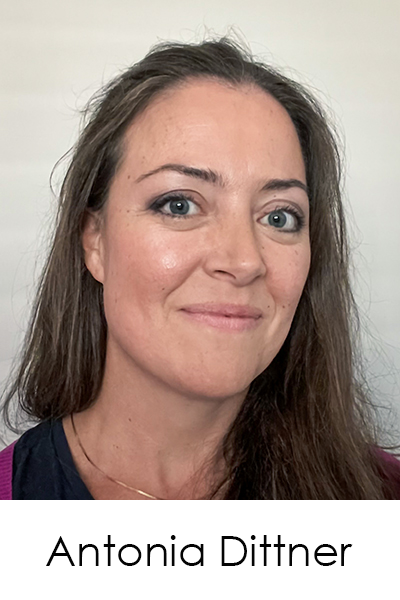
Workshops
Pre-Conference Workshops will be run as full-day workshops on Tuesday 23rd July 2023.
All pre-conference workshops will be run for in person attendance only. Further details, including about registration, will follow soon.
Workshop One
Working with complex cases in CBT
Stephen Barton, Hayley Tyson-Adams Cumbria, Northumberland, Tyne and Wear NHS Foundation Trust, UK and Stephen Holland, Newcastle University
“Complex case” is an often-used phrase in CBT but what do we mean by it? Do we have a shared understanding of what it is? This workshop will explore what a complex case is and provide guidance on how to identify, formulate and respond to clinical complications. Rather than seeing “complex” as a fixed property of a client, the workshop will explore treatment processes as influenced by clients, therapists, healthcare systems and the broader context.
The key question is: does a particular course of therapy proceed in the usual way, or do complications arise that obstruct or strain the process? The emphasis is on identifying and addressing complications within treatment, rather than ascribing levels of complexity to individual clients.
Working with this understanding of what complexity is, the workshop will explore two types of complication:
A. Problem complexity: when clients have multiple interacting problems. This can occur with co-morbid disorders when it’s difficult to know what to prioritise. It can be hard to stay focused on one target problem when other difficulties come to light (“unknown unknowns”). Concurrent social and/or bio-medical problems can also disrupt the usual CBT process.
B. Relational complexity: when there are complications in the therapeutic relationship that act as barriers to the collaboration needed for CBT to be effective. By definition, both client and therapist factors need to be considered, including the personal and task-orientated aspects of the alliance. Sometimes alliance barriers are obvious, and sometimes they go un-noticed and have an insidious effect on the process.
Key learning objectives
- Reflect on one of their complex cases, past or current
- Receive practical guidance on how to identify clinical complications, with respect to client problems and the working alliance
- Discuss practical strategies in pairs or small groups
- Learn how to address clinical complications with clients, once they have been identified
Stephen Barton is a clinical psychologist and CBT therapist based in Newcastle in the North East of England. He is an experienced therapist, supervisor, trainer, researcher and author, with interests in mood disorders, supervision and complex cases. He was formerly programme director of the Newcastle CBT Diploma and Head of Training and Research at the Newcastle CBT Centre. He is currently based at the Regional Affective Disorders Service in Newcastle, where he is conducting treatment research into difficult-to-treat depression and bipolar disorder.
References
Barton, S & Armstrong, P. (2019). CBT for Depression: An Integrated Approach. Part IV, Complex Cases (pages 201-265)
Barton, S., Armstrong, P., Wicks, L., Freeman, E. & Meyer, T.D. (2017) Treating complex depression with cognitive behavioural therapy. The Cognitive Behavioural Therapist. Vol. 10. http://dx.doi:10.1017/S1754470X17000149
The Cognitive Behavioural Therapist (2017). Vol. 10: Special Issue – Working with Complexity in CBT
Workshop Two
Imagery based emotion regulation for the treatment of anxiety and mood difficulties in complex cases
Susie Hales and Craig Steel, University of Oxford, UK
Mental imagery is an important target for intervention within CBT. Evidence points to the role of problematic imagery in the maintenance of a variety of mental health difficulties, including depression, anxiety disorders, bipolar disorder, post-traumatic stress disorder, eating disorders, psychosis and others.
The workshop aims to provide a practical guide to working with imagery within complex cases. We will cover assessment, formulation and intervention, including how to integrate imagery skills with other tools in the CBT repertoire. We will explore three key imagery intervention techniques: metacognitive approaches, utilising positive imagery, and rescripting (although note that we will not be focussing on rescripting trauma-based memories). We will cover how imagery focussed work can work within a wider CBT based formulation.
Imagery-based interventions primarily revolve around a few key approaches. If you have been to a CBT-based imagery workshop before there may therefore be overlap in the content. In this workshop the presenters will draw on their knowledge and experience of using mental imagery techniques to help with anxiety and mood difficulties in a range of complex presentations, including chronic anxiety, depression, bipolar disorder and psychosis. Please note that this workshop is not trauma-focussed and therefore if working with trauma is your primary interest we would suggest an alternative workshop may be more suitable.
Key learning objectives
- To have an overview of the clinical and experimental research on mental imagery, and to understand the importance of mental imagery in the context of mental health
- To be able to clearly communicate the concept of mental imagery to clients
- To be able to assess mental imagery and to use this information to create an imagery microformulation of a problematic image linked to the client’s difficulties
- To understand how mental imagery techniques may be incorporated in the treatment of complex cases and how to determine which techniques to use
- To gain skills in imagery-based CBT techniques, including metacognitive approaches, positive imagery and imagery rescripting
- To be able to identify areas of existing CBT practice where imagery work might be incorporated.
Susie Hales is a Clinical Psychologist currently working in Staff Support Services at Oxford University Hospitals NHS Trust. She has several years’ experience of working in complex adult mental health settings. Susie has provided supervision for therapists in imagery-based psychological therapy trials and has delivered imagery-focused cognitive therapy training workshops for a range of healthcare and academic organisations. Her research interests include mental imagery, bipolar disorder and suicidality.
Craig Steel is a Clinical Psychologist and accredited BABCP practitioner. He currently works as the Academic Director on the Oxford Clinical Psychology training programme and has a clinical role on an acute psychiatric ward. He has worked within the area of psychosis for over 20 years and has a specialist interest in the role of trauma in psychosis. He has used imagery-based work with a range of complex cases including psychosis, bipolar disorder and complex PTSD.
References
Hales, S.A., Young, K., Iyadurai, L., Blackwell, S.E., Kanstrup, M., Holmes, E.A. (2022). Working With Mental Imagery in Clinical Psychology. In Asmundson, G.J.G. (Ed.), Comprehensive Clinical Psychology (2nd edition) United States: Elsevier. https://dx.doi.org/10.1016/B978-0-12-818697-8.00204-1.
Holmes, E. A., Hales, S. A., Young, K. A. and Di Simplicio, M. (2019). Imagery-based cognitive therapy for bipolar disorder and mood instability. New York: Guilford Press.
Ji, J. L., Kavanagh, D. J., Holmes, E. A., MacLeod, C., & Di Simplicio, M. (2019). Mental imagery in psychiatry: conceptual & clinical implications. CNS Spectrums, 24(1), 114–126. doi:10.1017/S1092852918001487
Workshop Three

Overcoming distressing voices
Mark Hayward, University of Sussex, UK
This workshop will introduce attendees to Guided self-help CBT for distressing voices (the so called ‘GiVE intervention’). Consistent with the development of the interventionist-causal approach, GiVE is a blended intervention that targets some of the mechanisms associated with the maintenance of voice-related distress (low self-esteem, beliefs about voice power, control and truthfulness, and negative relating). An emerging evidence base suggests that the GiVE intervention can be helpful to clients across diagnoses and can be delivered by practitioners with a range of experience.
Attendees will be provided with the learning materials that support the delivery of the GiVE intervention: the published workbook (‘An introduction to Self-help CBT for distressing voices’), self-help book (‘Overcoming Distressing Voices’) and mobile phone app. The workshop will consider the principles and techniques of the intervention and utilise experiential learning opportunities to develop familiarity with the materials and the process of delivering the intervention. A review of findings from recently completed trials and routine clinical practice will stimulate discussions about the place and role of the GiVE intervention within a pathway of interventions for clients who are distressed by hearing voices and associated experiences.
Key learning objectives
At the conclusion of the workshop attendees will:
- be familiar with the principles of the GiVE intervention
- have some experience of using the techniques of the GiVE intervention
- have access to all of the materials required to support the delivery of the GiVE intervention
- be curious about the possible role of the GiVE intervention in increasing access to CBT for clients who are distressed by hearing voices.
Thanks to the generosity of the publishers (Little, Brown Book Group), attendees will be provided with free copies of the workbook (‘An introduction to Self-help CBT for distressing voices’) and self-help book (‘Overcoming Distressing Voices’).
The workshop will be facilitated by Mark Hayward, a Clinical Psychologist who has been learning with and from people who hear voices for the past 25 years. Mark is the lead for the Sussex Voices Clinic, a clinical and research service that is committed to increasing access to helpful interventions for clients who are distressed by hearing voices https://www.sussexpartnership.nhs.uk/our-research/mental-health-dementia-research/research-clinics/sussex-voices-clinic
References
Hayward, M., Strauss, C. & Kingdon, D. (2018). Overcoming Distressing Voices (2nd Edition). London: Robinson.
Hazell, C., Hayward, M, Strauss, C. & Kingdon, D. (2018). An introduction to self-help for distressing voices. London: Robinson.
Hayward, M., Berry, K., Bremner, S., Jones, A., Robertson, S., Cavanagh, K., . . . Strauss, C. (2021). Increasing access to cognitive–behavioural therapy for patients with psychosis by evaluating the feasibility of a randomised controlled trial of brief, targeted cognitive–behavioural therapy for distressing voices delivered by assistant psychologists: The GiVE2 trial. BJPsych Open, 7(5).
Workshop Four

Integrating mindfulness into CBT
Stirling Moorey, South London and Maudsley NHS Trust, UK
The effectiveness of 3rd wave therapies which employ mindfulness either as a formal practice as in Mindfulness Based Cognitive Therapy (MBCT) or as an informal method for being in the present moment as in Acceptance and Commitment Therapy (ACT) is recognised. Many therapists are now integrating mindfulness practices into 2nd wave CBT. Is this possible? Is it safe? This workshop will look at the similarities and differences between mindfulness in second and third wave therapies. For therapists who are not trained as mindfulness teachers we will explore how simple mindfulness practices such as the breathing space, and mindfulness of everyday experience such as mindful eating, mindful showering etc. can be safely weaved into standard CBT practice. Mindfulness can be a useful tool, but needs to be practised regularly outside periods of distress. The workshop will give links to self help resources that can assist this use of mindfulness. The importance of having our own mindfulness practice will be emphasised. For therapists who are trained mindfulness teachers, the workshop will offer the opportunity to consider how mindfulness can be used in CBT to address problems such as rumination, avoidance of emotional experience and maladaptive habits. The experiential part of this workshop will include practising mindfulness ourselves and guiding short mindfulness practices with each other. For therapists who are not experienced mindfulness practitioners the workshop will offer an introduction and direction to resources for further training.
Key learning objectives
After attending this workshop participants will:
- have experienced the effects of mindfulness for themselves and recognise the importance of personal practice in supporting the use of mindfulness in CBT.
- be able to describe the core features of mindfulness and the difference between mindfulness and attention control.
- be able to use the CBT conceptualisation to decide when mindfulness practices might benefit particular patients.
- be aware of possible adverse effects of mindfulness.
- be able to employ some brief mindfulness exercises in CBT and direct patients to resources for supporting their mindfulness practice.
- be confident in helping patients transition from CBT to a mindfulness group such as MBCT and vice versa.
Stirling Moorey is a retired consultant psychiatrist and BABCP accredited practitioner, trainer and supervisor. He is a registered mindfulness teacher with BAMBA and a Mindfulness Based Compassionate Living teacher. He has over 40 years experience as a CBT therapist and teacher and 17 years experience of teaching Mindfulness Based Cognitive Therapy for recurrent depression, OCD and health anxiety. He was external examiner for the Oxford MSt in MBCT and, with Dr Florian Ruths, was instrumental in setting up daily online ‘Mindfulness 4 All’ sessions during the pandemic for NHS staff.
References
Feldman, C., & Kuyken, W. (2019). Mindfulness: Ancient wisdom meets modern psychology. Guilford Publications.
Crane, R. (2017). Mindfulness-based cognitive therapy: Distinctive features. Taylor & Francis.
Michalak, J., Crane, C., Germer, C. K., Gold, E., Heidenreich, T., Mander, J., … & Segal, Z. V. (2019). Principles for a responsible integration of mindfulness in individual therapy. Mindfulness, 10, 799-811.
Workshop Five

Culturally Adapted CBT: From Theory to Practice
Farooq Naeem, University of Toronto
It is now widely accepted that modern evidence-based therapies such as CBT (Cognitive Behaviour Therapy) need to be culturally adapted for them to be successfully applied to clients from a non-Western background. We developed the Southampton Adaptation Framework to Culturally adapt CBT (SAF-CaCBT). The framework was developed through a series of qualitative studies and continues to evolve. More than 25 RCTs have been conducted using this framework. The framework has been used to adapt CBT in South Asia, the Middle East, China, England, Africa, and Canada. More than 20 studies have used the framework to adapt CBT culturally. The framework consists of three major areas of concern: (1) awareness of culture and religion, (2) assessment and engagement and (3) adjustments in therapy. Each area has 8 sub-areas to consider when culturally adapting CBT. This workshop will use SAF-CaCBT as a reference to help participants enhance their skills to work effectively with clients from ethnic minority backgrounds. The practice of cultural consultation will be illustrated in this interactive workshop with case studies- video role plays, and experiential exercises.
Key learning objectives
At the conclusion of this workshop, the participants will be able to
- Recognize cultural factors that need to be addressed when working with diverse population
- understand the barriers in applying culturally adapted CBT and how to address these barriers
- Learn some of the basic techniques that they can use to improve engagement with clients from a diverse background
Farooq Naeem is a full Professor of Psychiatry at the University of Toronto and a clinician scientist at the Centre for Addiction & Mental Health. He has published more than 200 peer-reviewed articles, 6 books and numerous therapy manuals and chapters. Farooq pioneered techniques for culturally adapting CBT. He developed the Southampton Adaptation Framework to culturally adapt CBT, which has been used to adapt CBT in South Asia, England, North Africa, the Middle East, Kenya, China and Canada. His significant contribution to implementation science is establishing a national organization to train and accredit CBT therapists, deliver therapy, promote research and educate the general public- the Pakistan Association of Cognitive Therapists (https://pact.com.pk/). This remains the only example of national implementation of CBT in a low-income country.
References
Farooq Naeem, Peter Phiri, Shanaya Rathod, Muhammad Ayub: Cultural adaptation of cognitive–behavioural therapy. 04/2019;, DOI:10.1192/BJPsych Advances.2019.15
Naeem F, Sajid S, Naz S, Phiri P. Culturally adapted CBT – the evolution of psychotherapy adaptation frameworks and evidence. The Cognitive Behaviour Therapist. 2023;16:e10.
Workshop Six
Cancelled
Workshop Seven

An evidence based approach to fear of recurrence and disease progression in cancer and chronic physical conditions
Louise Sharpe, University of Sydney, Australia
In our ageing society, the presence of chronic physical conditions is becoming more common and anxiety is a common sequalae of living with chronic disease. However, while cognitive-behavioural treatments for anxiety are associated with large effects, in the context of chronic illness, treatments have been shown to produce small changes or be ineffective. The concerns of those living with chronic illness, differ from those of people without chronic illnesses. It has recently been proposed that fear of the illness recurring or progressing is a fundamental fear that underlies anxiety in a range of conditions and is a transdiagnostic construct that impedes quality of life for people with chronic disease.
This workshop will describe models of fear of disease recurrence and progression, and examine the evidence that fear of progression is a transdiagnostic construct amongst those with chronic physical illness. This workshop will outline ways to help patients to be able to think about their future with uncertainty and live a life that has meaning and value to them, using a program called ‘Conquer Fear’. Conquer fear draws from acceptance commitment therapy, meta-cognitive therapy and behavioural strategies. Conquer Fear was shown in a large randomized controlled trial to be superior to relaxation training in reducing fear of cancer recurrence (FCR). The program includes values clarification and strategies from metacognitive therapy, that examine whether worry is helpful, harmful or controllable specifically in the context of FCR will be explored. Response prevention for checking behaviours and bodily monitoring will be described and demonstrated. Although this program was developed specifically for working with people living with or beyond cancer, the applicability for working with other illnesses in which fear of progression will be addressed.
Key learning objectives:
By attending this workshop, attendees will be able to:
- Understand and describe the theories for why some individuals develop clinically significant concerns about their disease recurring and progressing
- Identify effective treatment components, including values clarification, attention retraining, meta-cognitive therapy and behavioural response prevention and apply them to people with cancer and other chronic diseases;
- Provided with the ‘Conquer Fear’ treatment manual, an evidence-based intervention targeted to treating fear of cancer recurrence in the context of early stage cancer treated with curative intent; and
- Understand how to adapt the treatment and its manual to different chronic illnesses.
Professor Louise Sharpe is a clinical psychologist by training and led clinical services in the National Health Service in the UK in the 1990s before taking up an academic position. She is well known for her work on adjustment to illness and internationally renowned for her work in pain and fear of disease recurrence and progression. She has written more than 300 peer-reviewed papers and been continuously supported by grant funding from either the Australian Research Council or National Health and Medical Research Council (the two major Australian funding systems) since 2002.
She has been awarded distinguished career awards from the Australian Psychological Society, The Australian Association for Cognitive Behavioural Therapy (AACBT) and is a Fellow of both the AACBT and the Association for Social Scientists in Australia. She is regularly invited to speak about her work in keynotes, plenary sessions and invited workshops, including workshops at World Congress of Cognitive Behaviour Therapy and International Psycho-Oncology Society conferences.
Workshop Eight

Brief cognitive therapy for panic disorder in adolescents
Polly Waite, University of Oxford, UK
Panic disorder occurs in 1-3% of adolescents, commonly co-occurs with other mental health difficulties, and has a negative impact on functioning at school and with friends. In adults, individual cognitive therapy based on Clark’s (1986) cognitive model for panic disorder has been shown to be highly effective, including in a brief format. We have recently evaluated the brief version of this treatment, adapted for use with adolescents, within a feasibility randomised controlled trial and found it to be both effective and acceptable. This half-day workshop will provide attendees with an overview of how to identify and assess adolescents with panic disorder and deliver the brief form of cognitive therapy. This workshop is aimed at clinicians with prior experience using CBT for the treatment of anxiety disorders (in young people or adults). The workshop will involve demonstration of techniques, and practical activities. There will opportunities for discussion and to ask questions throughout.
Key learning objectives:
At the end of the workshop, attendees will have an understanding of:
- The characteristics of panic disorder in adolescents
- How to assess panic disorder in adolescents and use sessional measures to guide treatment
- The key elements of brief cognitive therapy for panic disorder (including the involvement of family members and school staff)
- How to undertake panic-specific behavioural experiments
Dr Polly Waite is an Associate Professor of Clinical Psychology in the Department of Experimental Psychology at the University of Oxford. She is also an Honorary Consultant Clinical Psychologist at Oxford Health NHS Foundation Trust. Her primary clinical and research interest is the treatment of anxiety disorders in adolescents. She has authored over 70 papers, as well as books and book chapters on anxiety and related difficulties for professionals, young people, and their families. She co-edits the Little, Brown Book Group ‘Helping Your Child’ for parents and carers and ‘Overcoming’ books series for adolescents with common mental health problems.
References:
Clark, D. M., Salkovskis, P. M., Hackmann, A., Wells, A., Ludgate, J., & Gelder, M. G. (1999). Brief cognitive therapy for panic disorder: a randomized controlled trial. Journal of Consulting and Clinical Psychology, 67(4), 583. https://doi.org/10.1037/0022-006X.67.4.583
Waite, P. (2022). Protocol for a randomised controlled feasibility study examining the efficacy of brief cognitive therapy for the treatment of panic disorder in adolescents (PANDA). Pilot and feasibility studies, 8(1), 49.
Waite, P. & Clark, D. M. (2023). Brief Cognitive Therapy for Panic Disorder in Adolescents: Clinician Manual and Session-by-Session Guide. Oxford: University of Oxford. https://oxcadatresources.com
Workshop Seven

An evidence based approach to fear of recurrence and disease progression in cancer and chronic physical conditions
Louise Sharpe, University of Sydney, Australia
In our ageing society, the presence of chronic physical conditions is becoming more common and anxiety is a common sequalae of living with chronic disease. However, while cognitive-behavioural treatments for anxiety are associated with large effects, in the context of chronic illness, treatments have been shown to produce small changes or be ineffective. The concerns of those living with chronic illness, differ from those of people without chronic illnesses. It has recently been proposed that fear of the illness recurring or progressing is a fundamental fear that underlies anxiety in a range of conditions and is a transdiagnostic construct that impedes quality of life for people with chronic disease.
This workshop will describe models of fear of disease recurrence and progression, and examine the evidence that fear of progression is a transdiagnostic construct amongst those with chronic physical illness. This workshop will outline ways to help patients to be able to think about their future with uncertainty and live a life that has meaning and value to them, using a program called ‘Conquer Fear’. Conquer fear draws from acceptance commitment therapy, meta-cognitive therapy and behavioural strategies. Conquer Fear was shown in a large randomized controlled trial to be superior to relaxation training in reducing fear of cancer recurrence (FCR). The program includes values clarification and strategies from metacognitive therapy, that examine whether worry is helpful, harmful or controllable specifically in the context of FCR will be explored. Response prevention for checking behaviours and bodily monitoring will be described and demonstrated. Although this program was developed specifically for working with people living with or beyond cancer, the applicability for working with other illnesses in which fear of progression will be addressed.
Key learning objectives:
By attending this workshop, attendees will be able to:
- Understand and describe the theories for why some individuals develop clinically significant concerns about their disease recurring and progressing
- Identify effective treatment components, including values clarification, attention retraining, meta-cognitive therapy and behavioural response prevention and apply them to people with cancer and other chronic diseases;
- Provided with the ‘Conquer Fear’ treatment manual, an evidence-based intervention targeted to treating fear of cancer recurrence in the context of early stage cancer treated with curative intent; and
- Understand how to adapt the treatment and its manual to different chronic illnesses.
Professor Louise Sharpe is a clinical psychologist by training and led clinical services in the National Health Service in the UK in the 1990s before taking up an academic position. She is well known for her work on adjustment to illness and internationally renowned for her work in pain and fear of disease recurrence and progression. She has written more than 300 peer-reviewed papers and been continuously supported by grant funding from either the Australian Research Council or National Health and Medical Research Council (the two major Australian funding systems) since 2002.
She has been awarded distinguished career awards from the Australian Psychological Society, The Australian Association for Cognitive Behavioural Therapy (AACBT) and is a Fellow of both the AACBT and the Association for Social Scientists in Australia. She is regularly invited to speak about her work in keynotes, plenary sessions and invited workshops, including workshops at World Congress of Cognitive Behaviour Therapy and International Psycho-Oncology Society conferences.
Workshop Eight

Brief cognitive therapy for panic disorder in adolescents
Polly Waite, University of Oxford, UK
Panic disorder occurs in 1-3% of adolescents, commonly co-occurs with other mental health difficulties, and has a negative impact on functioning at school and with friends. In adults, individual cognitive therapy based on Clark’s (1986) cognitive model for panic disorder has been shown to be highly effective, including in a brief format. We have recently evaluated the brief version of this treatment, adapted for use with adolescents, within a feasibility randomised controlled trial and found it to be both effective and acceptable. This half-day workshop will provide attendees with an overview of how to identify and assess adolescents with panic disorder and deliver the brief form of cognitive therapy. This workshop is aimed at clinicians with prior experience using CBT for the treatment of anxiety disorders (in young people or adults). The workshop will involve demonstration of techniques, and practical activities. There will opportunities for discussion and to ask questions throughout.
Key learning objectives:
At the end of the workshop, attendees will have an understanding of:
- The characteristics of panic disorder in adolescents
- How to assess panic disorder in adolescents and use sessional measures to guide treatment
- The key elements of brief cognitive therapy for panic disorder (including the involvement of family members and school staff)
- How to undertake panic-specific behavioural experiments
Dr Polly Waite is an Associate Professor of Clinical Psychology in the Department of Experimental Psychology at the University of Oxford. She is also an Honorary Consultant Clinical Psychologist at Oxford Health NHS Foundation Trust. Her primary clinical and research interest is the treatment of anxiety disorders in adolescents. She has authored over 70 papers, as well as books and book chapters on anxiety and related difficulties for professionals, young people, and their families. She co-edits the Little, Brown Book Group ‘Helping Your Child’ for parents and carers and ‘Overcoming’ books series for adolescents with common mental health problems.
References:
Clark, D. M., Salkovskis, P. M., Hackmann, A., Wells, A., Ludgate, J., & Gelder, M. G. (1999). Brief cognitive therapy for panic disorder: a randomized controlled trial. Journal of Consulting and Clinical Psychology, 67(4), 583. https://doi.org/10.1037/0022-006X.67.4.583
Waite, P. (2022). Protocol for a randomised controlled feasibility study examining the efficacy of brief cognitive therapy for the treatment of panic disorder in adolescents (PANDA). Pilot and feasibility studies, 8(1), 49.
Waite, P. & Clark, D. M. (2023). Brief Cognitive Therapy for Panic Disorder in Adolescents: Clinician Manual and Session-by-Session Guide. Oxford: University of Oxford. https://oxcadatresources.com
Workshop Nine

Rumination-focused CBT for anxiety and depression
Ed Watkins, University of Exeter, UK
Rumination has been identified as a core process in the maintenance and onset of depression (Nolen-Hoeksema, 1991; 2000) and as a possible transdiagnostic mechanism contributing to co-morbidity (Harvey et al., 2004; Nolen-Hoeksema & Watkins, 2011). This workshop will illustrate how the CBT approach can be modified to reduce rumination in chronic, recurrent, and residual depression and co-morbid anxiety. A programme of research by Dr Watkins has suggested that the thinking style adopted during rumination can determine whether it has helpful or unhelpful consequences on social problem solving (Watkins & Moulds, 2005) and emotional processing (Watkins, 2004, 2008). This experimental work has inspired a novel approach to treating depression, called Rumination-focused CBT, which focuses on changing the process of thinking, rather than simply changing the content of thinking, to be more effective in successfully reducing rumination and treating depression (Watkins, 2016). There is empirical backing for the efficacy of this approach for difficult-to-treat patients in terms of a randomised controlled trial funded by NARSAD (Watkins et al., 2011; Watkins, 2015), and a recent trial of group RFCBT has found that it outperformed standard group CBT for outpatient depression (Hvennegard et al., 2019). In addition, group and internet versions of RFCBT have been shown to be effective at halving the rates of depression and anxiety in a vulnerable high-risk group over 1 year (Topper et al., 2017; Cook et al., 2019). The webinar will review the theoretical background and core techniques of the therapy, including functional analysis of thinking style, behavioural activation, use of imagery, concreteness, experiential exercises, and behavioural experiments to coach patients to shift to more adaptive styles of thinking.
Key learning objectives:
- To briefly review the theory and research relevant to repetitive negative thought (worry and rumination)
- To briefly review the rumination-focused CBT approach, including behavioural activation, functional analysis, modifying thought-form-process, training in shifting thinking style, experiential exercises that counter rumination including relaxation, mental absorption and compassion
- Attendees will be able to describe the nature and consequences of rumination in depression.
- Participants will have insight into CBT approaches for rumination and worry in depression and anxiety
Professor Watkins is Professor of Experimental and Applied Clinical Psychology at the School of Psychology, University of Exeter and co-founder of the Mood Disorders Centre, University of Exeter, and Director of the Study of Maladaptive to Adaptive Repetitive Thought (SMART) Lab. He is a pre-eminent expert in the field of experimental psychopathology and psychological treatments for depression, with a particular emphasis on understanding and treating rumination and worry. He has specialist clinical training and expertise in cognitive therapy for depression, with over 25 years clinical experience. His research has been funded by the Wellcome Trust, UK Medical Research Council, European Commission, US NIMH and a NARSAD Young Investigators Award. In 2004, he was awarded the British Psychological Society’s May Davidson Award for outstanding early-career contributions to the development of clinical psychology. He was a member of the recent UK NICE Guidelines Committee for Treatment of Adult Depression.
He is the co-founder of the Mood Disorders Centre, University of Exeter, a partnership between the University of Exeter and Devon Partnership NHS Trust, specialising in psychological research and treatment for depression. He has specialist clinical training and expertise in cognitive therapy for depression.
References:
Watkins, E.R. (2016). Rumination focused cognitive behavioral therapy for depression. Guilford Press
Watkins, E.R., Mullan, E.G., Wingrove, J., Rimes, K., Steiner, H., Bathurst, N., Eastman, E., & Scott, J. (2011). Rumination-focused cognitive behaviour therapy for residual depression: phase II randomized controlled trial. British Journal of Psychiatry, 199, 317- 322. Doi:10.1192/bjp.bp.110.090282.
Watkins, E.R. & Roberts, H. (2020). Reflecting on rumination: consequences, causes, mechanisms and treatments of rumination. Behaviour Research and Therapy, 127, 103573, https://doi.org/10.1016/j.brat.2020.103573
Workshop Ten

How to feel more confident treating PTSD in survivors of rape and sexual assault
Kerry Young, Central and North West London NHS Foundation Trust, UK
CBT practitioners often feel uncertain about how to treat Post-traumatic Stress Disorder (PTSD) following rape and sexual assault. There are many myths and rumours about what you should and should not do. All too frequently, this uncertainty results in therapists avoiding doing trauma-focused work with these clients. Whilst understandable, this means that the survivor continues to re-experience being raped over and over again. Moreover, it means that survivors of rape are denied effective treatment for their PTSD.
This workshop outlines an evidence-based CBT approach to treating PTSD following a rape in adulthood. It aims to be a practical, ‘how to’ guide for therapists, drawing on decades of clinical experience in this area. I will share film links to demonstrate how to undertake each step of the treatment pathway.
We will consider how to assess and formulate PTSD following a rape in adulthood, then how to deliver Cognitive Therapy for PTSD (CT-PTSD; Ehlers and Clark, 2000). I will cover both client and therapist factors when working with memories of rape, as well as some legal, social, cultural, and interpersonal considerations.
To aid learning, the focus will be on a single rape in adulthood. However, much of what we cover will also be useful for working PTSD to multiple rapes in adulthood, and with adult survivors of childhood sexual abuse presenting with PTSD and other co-morbid psychological difficulties, such as psychosis, depression and substance misuse.
Key learning objectives:
- To understand the importance of providing effective, trauma-focused therapy for survivors of rape in adulthood who are experiencing symptoms of PTSD.
- To be able to assess and formulate PTSD following a rape in adulthood.
- To be able to deliver CT-PTSD with this client group.
- To find out how to manage the dissociation common in this client group.
- To be able to select and choose appropriate cognitive, behavioural and imagery techniques to help with feelings of shame, responsibility, anger, disgust, and contamination.
- To know where to find out more about psycho-sexual, interpersonal, cultural, and legal difficulties following rape.
- For therapists to learn how best to support their own ability to cope with working in a trauma-focused way with survivors of rape and sexual violence.
Kerry Young is a Consultant Clinical Psychologist and Clinical Lead of the Woodfield Trauma Service in London, a leading centre for the treatment of asylum seekers and refugees suffering from PTSD. She also works at the Oxford Rose Clinic, a service for the medical and psychological treatment of women who have experienced Female Genital Mutilation. She has worked in specialist PTSD services for 27 years and has advised national bodies on how to train clinicians to work with refugees, PTSD and Complex PTSD. She has co-created and delivered two NHSE-funded national ‘top-up’ training programmes for NHS Talking Therapies to work with PTSD and with refugees and asylum seekers. Kerry trains nationally and internationally on how to treat PTSD, Complex PTSD and working with refugees, as well as on using mental imagery techniques. She has published in the field of both trauma and mental imagery.
References:
Murray, H., Grey, N., Warnock-Parkes, E., Kerr, A., Wild, J., Clark, D., & Ehlers, A. (2022). Ten misconceptions about trauma-focused CBT for PTSD. The Cognitive Behaviour Therapist, 15, E33. doi:10.1017/S1754470X22000307
Starzynski, L. L., Ullman, S. E., & Vasquez, A. L. (2017). Sexual assault survivors’ experiences with mental health professionals: A qualitative study. Women & Therapy, 40(1-2), 228-246
Young, K., Chessell, Z.J., Chisholm A, et al. A cognitive behavioural therapy (CBT) approach for working with strong feelings of guilt after traumatic events. The Cognitive Behaviour Therapist. 2021;14: e26. doi:10.1017/S1754470X21000192
Workshop Eleven

Making sense of the senses: Transdiagnostic techniques for sensory sensitivity
Jane Gregory, University of Oxford, UK
There is wide variation in responsivity to sensory cues in the population. Sensory sensitivity is proposed to be a vulnerability factor in anxiety disorders and obsessive-compulsive disorders, a key feature in some neurodevelopmental conditions, and a defining feature of sensory processing disorder and misophonia.
This workshop will introduce a simple model for understanding the potential cognitive and behavioural mechanisms involved in the distress and impairment caused by sensory sensitivity. Many existing transdiagnostic strategies can be used to target these mechanisms, and the model can be integrated into broader formulations for individual clients.
The role of coping behaviour in sensory sensitivity is complex and idiosyncratic. Many strategies that help individuals to participate more in life and connect better with others, can serve as safety-seeking behaviours in others. We will use functional analysis and behavioural experiments to test theories about the intended purpose and unintended consequences of coping strategies.
We will examine the role of associative learning in sensory processing, using the example of misophonia, characterised by an intense emotional or behavioural reaction to certain everyday sounds. We will test out a range of interventions based on inhibitory learning principles, experimenting with creating new associations with sounds.
Key Learning Objectives:
By the end of the workshop, participants will be able to:
- Create a simple CBT model of distress and impairment in sensory sensitivity
- Adapt existing transdiagnostic skills to target potential maintenance factors
- Complete a functional analysis of coping strategies in sensory sensitivity
- Design behavioural experiments to test and compare theories about coping strategies
- Deliver an experiment using inhibitory learning principals, intended to create new associations with sounds
- Consider modifications to treatment for children, young people and neurodivergent individuals
Jane Gregory is a clinical psychologist specialising in misophonia, obsessive compulsive disorder and body dysmorphic disorder. She is currently researching cognitive and behavioural mechanisms of misophonia, under the Wellcome Doctoral Scheme for Clinicians. She sees clients with misophonia and provides specialist misophonia supervision at a national psychology service in Oxford Health NHS Foundation Trust. She is co-creator of the S-Five, a multidimensional questionnaire measuring symptoms of misophonia, and created two new scales for capturing misophonic behaviours and feared consequences. She is the author of the self-help book, Sounds Like Misophonia: how to stop small noises causing extreme reactions.
Key references:
Frank, B., & McKay, D. (2019). The suitability of an inhibitory learning approach in exposure when habituation fails: A clinical application to misophonia. Cognitive and Behavioral Practice, 26(1), 130-142.
Gregory, J., & Foster, C. (2023). Session-by-session change in misophonia: a descriptive case study using intensive CBT. The Cognitive Behaviour Therapist, 16, e18.
Ward, J. (2019). Individual differences in sensory sensitivity: A synthesizing framework and evidence from normal variation and developmental conditions. Cognitive neuroscience, 10(3), 139-157.
Workshop

Thursday 25th July:
Cognitive behavioural therapy for adult ADHD
Antonia Dittner, South London and Maudsley NHS Trust, UK
ADHD in adulthood is associated with high levels of functional impairment and psychological distress. There is growing evidence that psychological treatments can address both the core symptoms themselves and the associated emotional distress.
This workshop presents a cognitive-behavioural approach to formulation and treatment of ADHD in adults. It will consider some of the challenges for individuals with ADHD in accessing CBT and how to adapt the style and content to overcome them. It will cover techniques to address core symptoms of the condition as well as adaptations that can be helpful when using CBT to treat common mental health problems in adults with ADHD.
This workshop aims to improve therapist knowledge, skills and confidence in working with adults with ADHD. The intended learning outcomes may also be helpful in adapting practice for people with difficulties with inattention, hyperactivity or impulsivity but who do not have a formal diagnosis of adult ADHD.
Key learning objectives:
To become familiar with the impact of ADHD on functioning and the associated psychological distress
To become familiar with a cognitive behavioural conceptualisation of adult ADHD
To become familiar with the main ways to adapt CBT for adults with ADHD
To become more confident to adapt CBT practice for adults with ADHD
Dr Antonia Dittner is a Consultant Clinical Psychologist at South London and Maudsley NHS Trust where she leads the National Adult ADHD and Autism Psychology service, a national service specialising in psychological therapies for adults with neurodevelopmental conditions. She has worked in the NHS for 20 years in a range of settings, and for many of those years with adults with neurodevelopmental conditions. Antonia has carried out research investigating cognitive behavioural aspects of Adult ADHD, including a randomised controlled trial investigating a cognitive behavioural formulation-driven approach to treating adults with ADHD.
References:
Dittner A, Hodsoll J, Rimes K, Russell A, Chalder T. Cognitive-behavioural therapy for adult attention deficit hyperactivity disorder: a proof of concept randomized controlled trial. Acta Psychiatrica Scandinavica 2018 Feb 1;137(2):125-137
Ramsay, J. R., & Rostain, A. L. (2015). Cognitive behavioral therapy for adult ADHD: An integrative psychosocial and medical approach (2nd ed.). New York, NY: Routledge
Virtual Workshop
30th September 2024:
PBS and the Positive Behavioural & Active Support (PBAS) App
Sandy Toogood, Bangor University, UK & Nick Gore, University of Kent, UK
This workshop is aimed at people involved in delivering Positive Behavioural Support services directly or indirectly to persons with intellectual disabilities, some of whom may also be described as autistic. This includes, but is not limited to, frontline staff, managers and senior managers, nurses, psychologists, and PBS practitioners. Our workshop may additionally be of interest to parents, advocates, relatives, and friends of people using services.
Background: The principal aims in Positive Behavioural Support are (a) to enhance quality of life, and (b) minimise the impact of behaviours that challenge. Promoting a good quality of life is a major way of preventing behaviours of concern from occurring. Simultaneously, reducing behaviour that challenges promotes a good quality of life. In PBS, tier 1 (universal) supports enhance quality of life for the broad population of people with intellectual disabilities. Universal supports are ubiquitous and available to all. Their effectiveness in services depends crucially on person-centredness and the carefully choreographed actions of services and staff. Active Support has emerged as a candidate for providing effective tier 1 supports. Active Support is a person- and systems-centred framework for enhancing autonomy and control, activity engagement, relationships, and community involvement. Each are contexts likely to evoke behaviours of concern if not properly addressed. Rob Horner once described PBS interventions as aiming to make behaviours that challenge ineffective, inefficient, and irrelevant. Ted Carr called one model of Active Support state-of-the-art prevention. The fundamentals of Active Support have changed little over recent years. Active Support requires training to get going, and onsite support to maintain and improve it over time. A recent development is an app that seeks to exploit the enabling potential of personal routines and household customs, skills teaching, functional assessment, and real time data displays. Already evaluated as an in-house intervention, NIHR has this year funded a multi-site initiative to develop proposals for a definitive trial in 2025. The app is called PBAS (pronounced pee-bas), which stands for Positive Behavioural and Active Support.
In this workshop, participants will review the conceptual underpinnings of PBS drawing on the 2022 State of the Nation report, and Active Support as described over the last forty years. The app’s features will be demonstrated, and their functions explained. There will be opportunities to interact with the PBAS app.
Key learning objectives:
At the end of the workshop, participants will be able to:
- Describe the fundamental concepts and constructs that define PBS and Active Support.
- Differentiate tier 1 universal supports with and from tier 2 and tier 3 focused supports.
- Explain how tier 1 supports serve to improve quality of life and reduce the risk of behaviours that challenge.
- Name the PBAS app, list its principal features, and explain their role and function.
- Show how multi-level personal and household routines can free people from unnecessary instruction and needless ‘error’ correction – the liberating nature of person-centred supports.
Sandy Toogood PhD is a Behaviour Analyst with almost 50 years in the field. He has been a direct care worker, manager, home teacher, trainer, and academic. He is currently Honorary Professor at Bangor University. In the 1980s Sandy helped pioneer Active Support and then co-led the Special Development Team at the University of Kent. He later worked on establishing the first MSc in ABA, and BACB approved course sequence, in the UK. Sandy has published extensively, developed training materials, and contributed to a wide range of projects including most recently a school for pupils with autism and a suite of apps for use in supported living, day services, and schools.
Dr Nick Gore is a clinical psychologist and behavioural scientist based at University of Kent. Nick’s clinical and research work focuses on systems and interventions that promote good lives for people with learning disabilities, autistic people and those who care for and support them. He works closely with people with learning disabilities, autistic people, families and professionals, to conduct and use research, carry out clinical work and to develop practical resources and guidance. Nick has a special interest in Positive Behavioural Support and is committed to working in partnership across communities to develop resources and research that support integration of the values, theories and technologies of a PBS framework in practice.
References:
Gore, N. J., Sapiets, S.J., Denne, L. D., Hastings, R. P., Toogood, S., MacDonald, A., Baker, P., Allen, D., Apanasionok, M. M., Austin, D., Bowring, D. L., Bradshaw, J., Corbett, A., Cooper, V., Deveau, R., Hughes, J. C., Jones, E., Lynch, Matt., McGill, P., Mullhall, M., Murphy, M., Noone, Steve., Shankar, Rohit., and Williams, D. (2022) Positive Behavioural Support in the UK: A State of the Nation Report. International Journal of Positive Behavioural Support, Volume 12, Supplement 1, February 2022, pp. i-
Flynn, S.,Totsika, V., Hastings, R.P., Hood, K., Toogood, S., and Felce, D. (218) Effectiveness of Active Support for adults with intellectual disability in residential settings: Systematic review and meta-analysis. Journal of Applied Research in Intellectual Disabilities. 1–16 Toogood, S., McClennan, K., Welch, C., McGolpin, J., Murvai, E. (2020) Active Support for the digital age. International Journal of Positive Behavioural Support. 10, 2, 30-40
